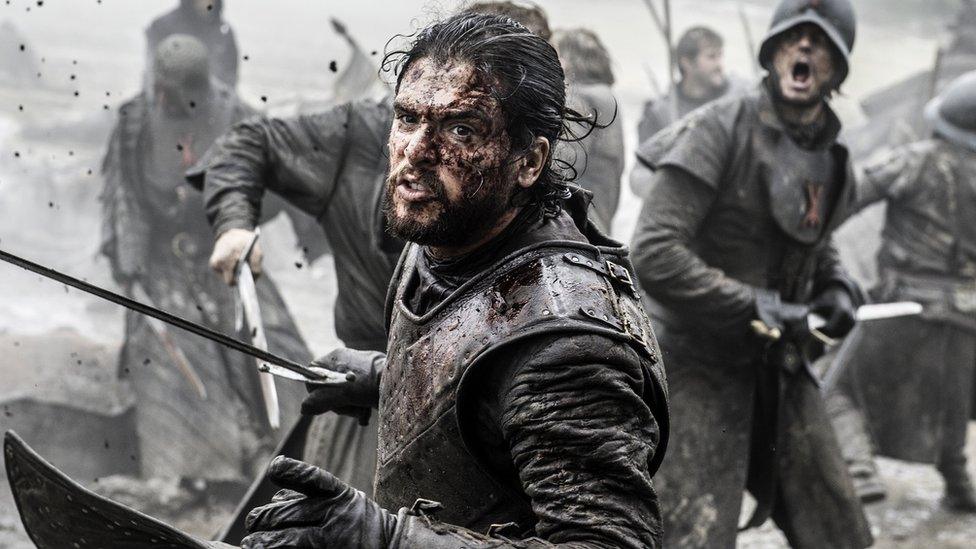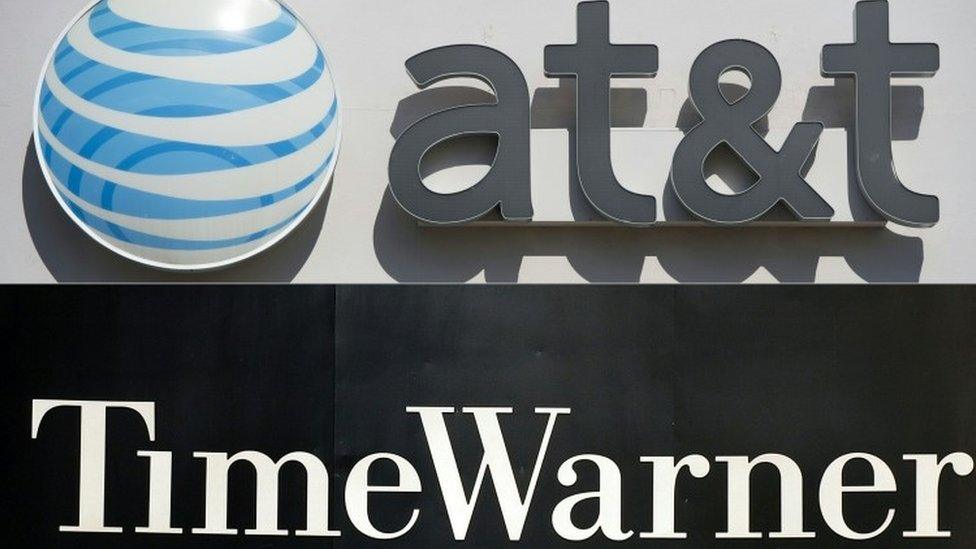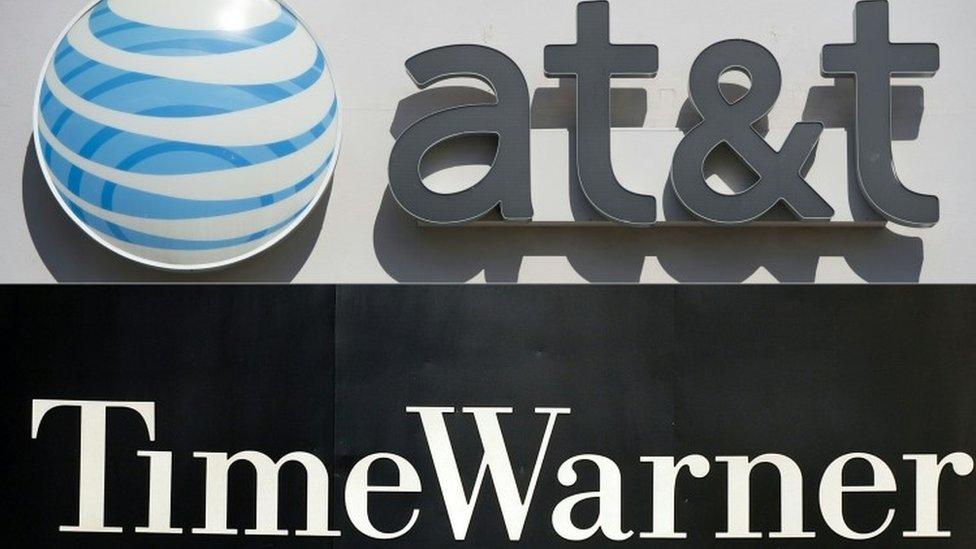AT&T-Time Warner deal: What does it mean for consumers?
- Published

Game of Thrones is just one of the shows that AT&T will scoop up with Time Warner
AT&T's planned takeover of Time Warner would be one of the biggest deals the industry has ever seen, and one that will almost certainly affect consumers - especially in the US.
Pending regulatory approval it would be a merger between two very different companies.
Time Warner creates content - TV shows, channels and movies.
AT&T's wireless, phone and cable networks are major platforms people access that content on.
For the consumer, this deal might affect price, choice and advertising - issues regulators will inevitably be examining before giving the go-ahead.
And politicians have already weighed in, with the two presidential hopefuls Hillary Clinton and Donald Trump both saying they were wary of the deal.
So what are the issues?
Price
Whether it is hit series Game of Thrones or the Harry Potter movies, the CNN news network or NFL football on TNT - swathes of popular content is all owned by Time Warner.
And one big concern is that AT&T will use the deal to offer more of Time Warner's content for its existing customers, and woo new ones by offering perks to access Time Warner's hit shows.
It could, for example, make its own offerings available via "zero-rating" - allowing customers to stream certain content without it eating into their data plans.
This means that if you are on AT&T - you would be able to stream NFL games or Game of Thrones episodes without having to worry about hitting data usage limits.

The deal is believed to be the biggest in the world so far this year
That might be a good thing if you happen to be on AT&T (and of course if those shows interest you).
But for customers signed up to a rival telecoms company, there is already a fear they could find themselves having to pay more, switch providers, or go without.
Competition and choice
There is a lot of very successful content assembled under the Time Warner umbrella: HBO, Warner Brothers film studios, CNN, TBS, and TNT. It also owns DC Entertainment, home to Batman and Superman and has a 10% stake in the Hulu streaming subscription service.
But media content companies like Time Warner are facing distribution challenges with rapidly changing audience behaviour. Younger viewers in particular are "cutting the cord", ditching cable and watching their favourite shows on mobile devices.
For any smaller media company without privileged access to a network like AT&T's, it will be increasingly hard to get noticed and push past the dominant market players.
And with media analysts expecting this deal to kick off more consolidation in the industry (Disney buying Netflix to help its distribution is one rumour doing the rounds, while a big tech firm like Apple or Google buying Disney is also seen as a possibility by some) things are only likely to get harder for small players.
Advertising
The merger will also help AT&T "innovate on new advertising options, which, combined with subscriptions, will help pay for the cost of content creation," the company said over the weekend.
How would that work? Well AT&T's ability to gather data about user behaviour from its tens of millions of customers means the company can do a better job tailoring adverts and video to user preferences.
It could then create more attractive subscription packages suited for phones, which is the platform people increasingly choose for watching video.
Better targeted advertising would bring in more money to flow back into content creation, says AT&T. It could even make subscriptions cheaper - though without pressure from competition, there might be little incentive for AT&T to pass increased earnings on to their customers.
- Published24 October 2016

- Published23 October 2016
